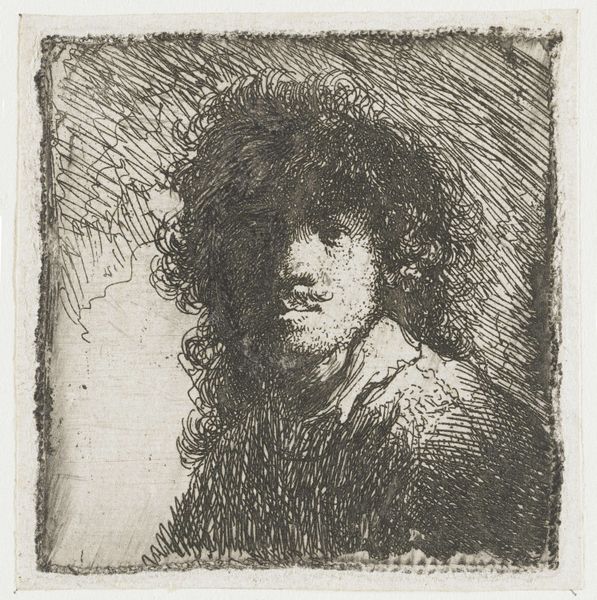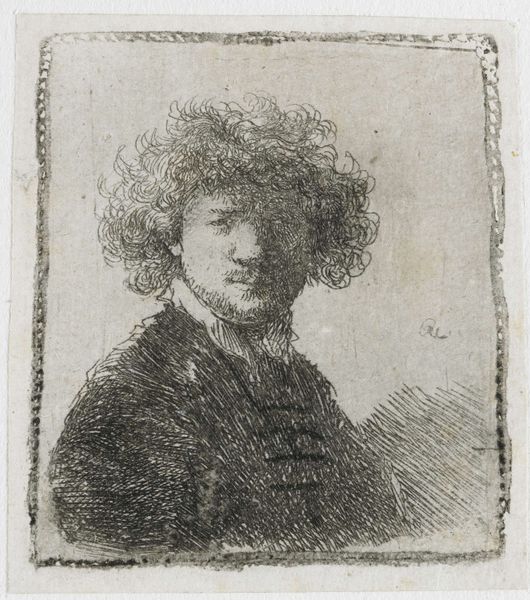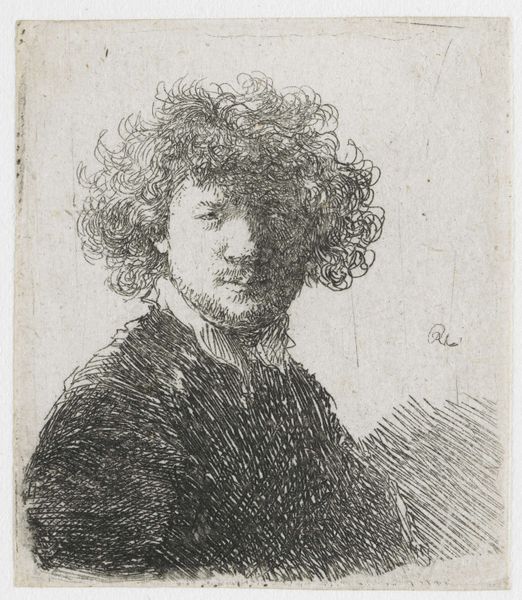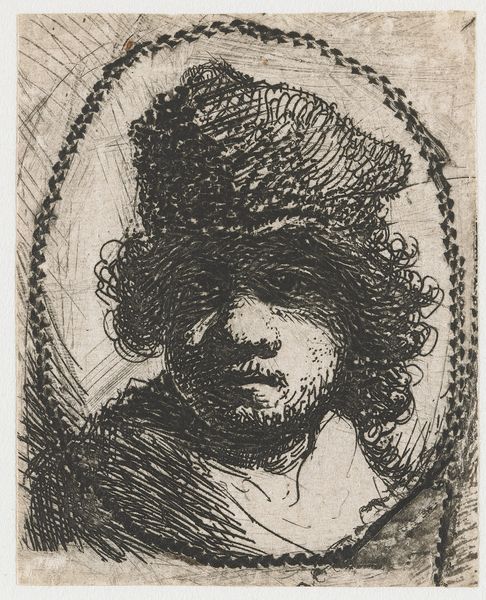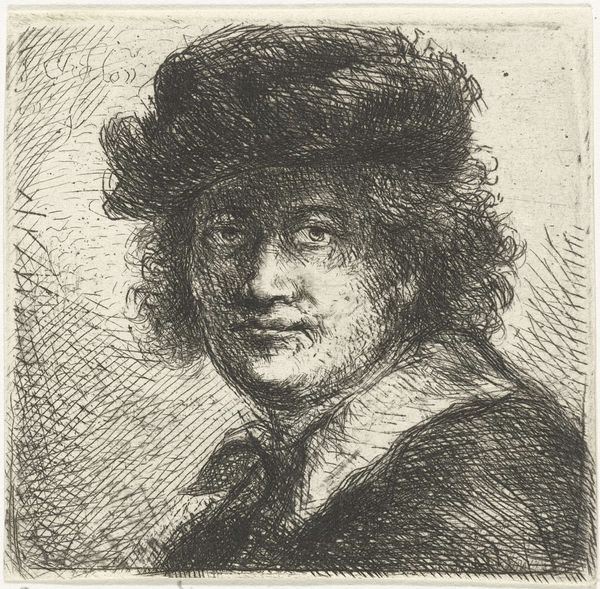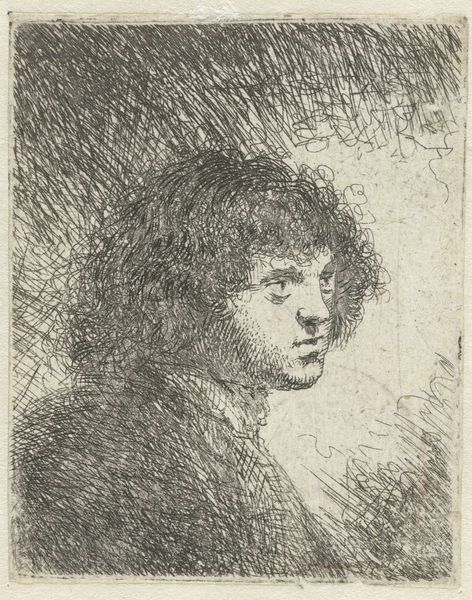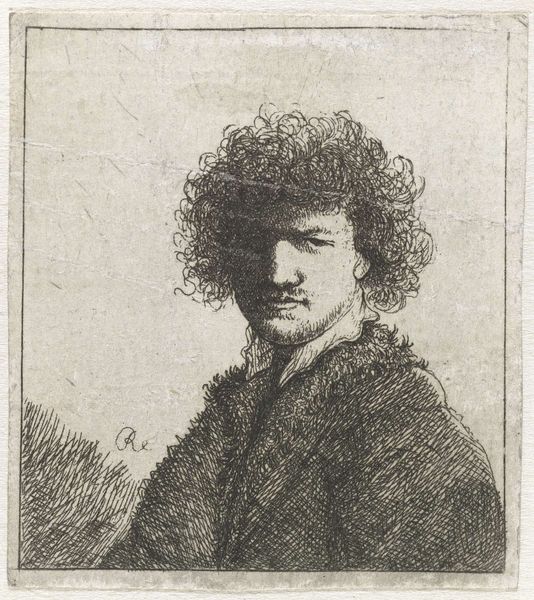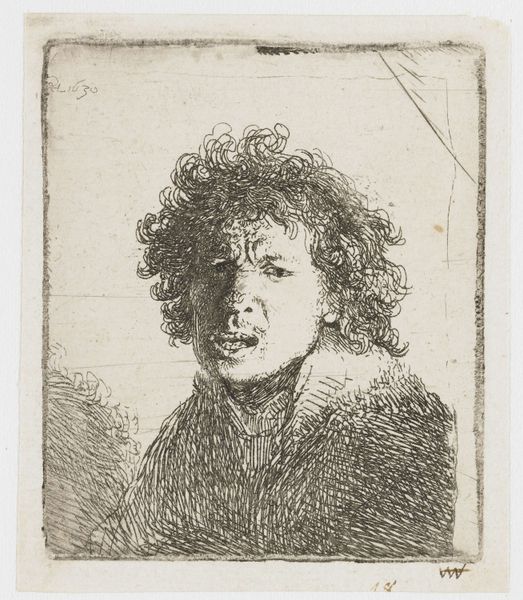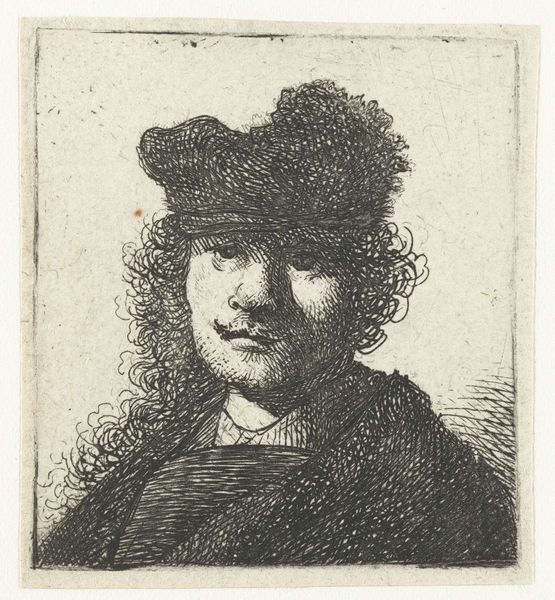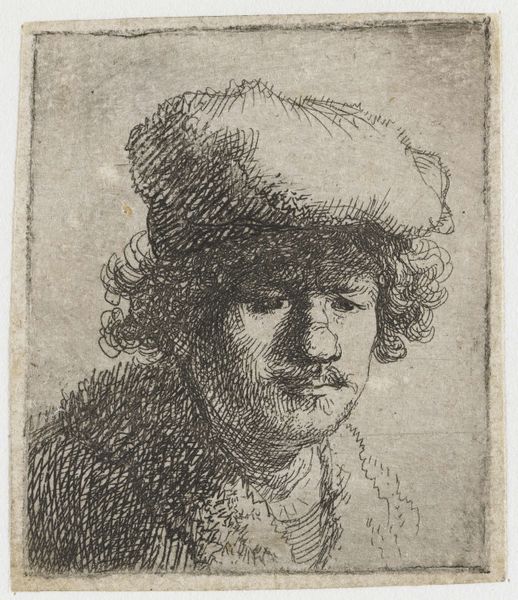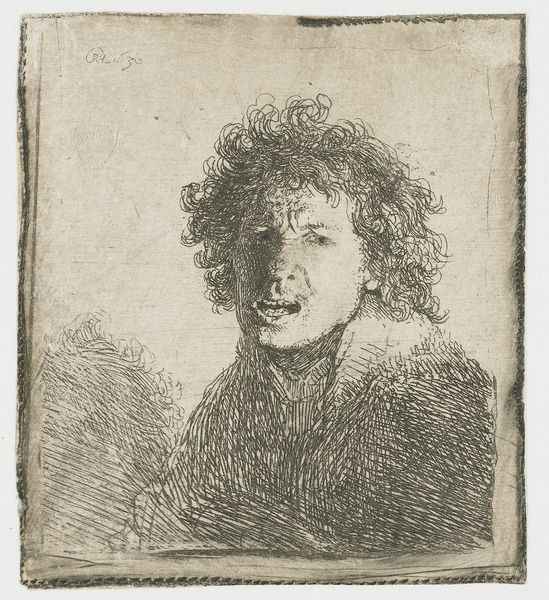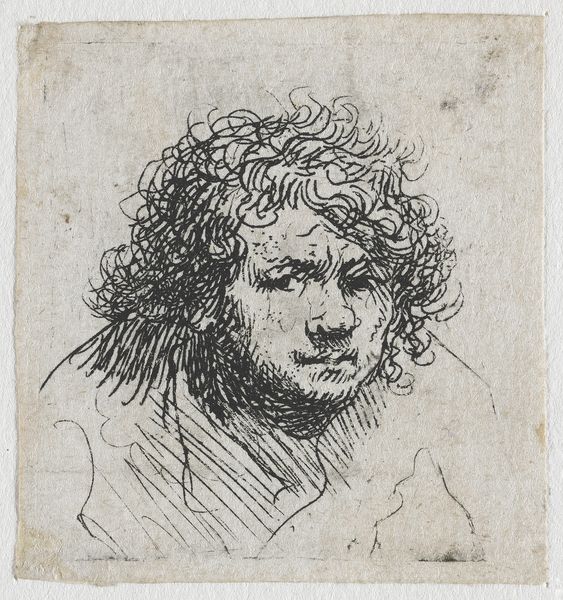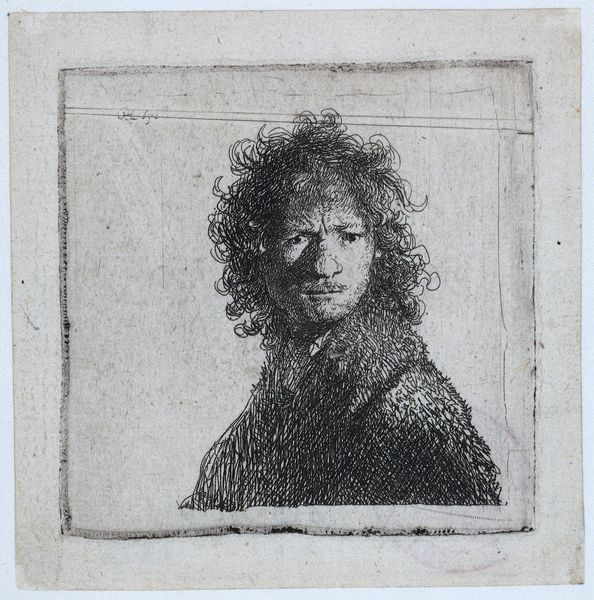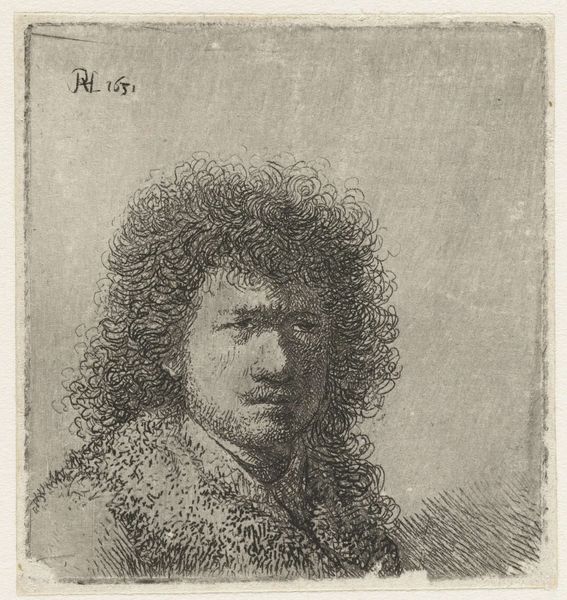
drawing, etching, paper
#
portrait
#
pencil drawn
#
drawing
#
self-portrait
#
baroque
#
dutch-golden-age
#
etching
#
charcoal drawing
#
paper
#
pencil drawing
#
line
Dimensions: height 67 mm, width 65 mm
Copyright: Rijks Museum: Open Domain
This self-portrait, etched by Rembrandt van Rijn, presents us with a study in light and shadow, revealing the artist’s deep introspection. The darkness veiling half of his face evokes the chiaroscuro, a technique seen in Caravaggio's works, used here to intensify the psychological depth. Rembrandt’s gaze, though partially obscured, compels us. This echoes the ‘pathos formula’ – the use of emotional expression to engage the viewer. Consider the ancient Greek masks of tragedy, where exaggerated features conveyed profound suffering. Rembrandt uses a similar strategy, employing light and shadow to amplify the emotion. The self-portrait as a mirror of the soul has an intriguing history. From the philosophical musings of antiquity to the Renaissance, where artists like Dürer explored their own image as a reflection of inner states. This symbolic journey of self-exploration continues, each artist offering a new layer to the cultural memory.
Comments
No comments
Be the first to comment and join the conversation on the ultimate creative platform.
